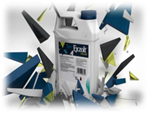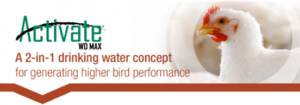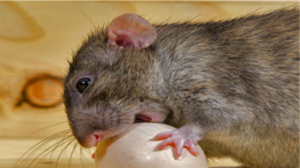Our new website has launched!
Visit our new website at http://www.poultryhealthservices.com to find out who is who, where to find our practices, our opening times, phone numbers, laboratory submission forms and the latest news. You can also browse our online shop, which will be offering more products over the next few months, including detergents, disinfectants and farm consumables. Please email your feedback to [email protected] as we will be continuously reviewing and updating the content and your views are important to us.

Controlling Red Mite: How?
By Megan Wood BVSc MRCVS, PHS Sheriff Hutton (York)
Following on from May’s newsletter article, “What can be done practically at farm level to monitor red mite”, this month Megan tell us what methods can be used for controlling red mite throughout the spring and summer.
Controlling Red Mite
· Good cleaning and disinfection at turn around is the place to start with controlling red mite. Ensure you use a detergent that will dislodge mites from cracks. After washing, allow the house to dry thoroughly and then disinfect to kill the red mite, allowing this to dry fully too.
· Red mite can survive up to a year off the bird, even in cold conditions, as they wait in stasis for the hen’s body warmth. Therefore, it is also important that infrastructure such as fans and ventilation systems are maintained and dust removed at every turn around.
· Before the birds arrive is a good time to try insecticide-based treatments, such as Diatomaceous Earth which acts to dehydrate red mite.
· Keeping biosecurity standards high on farms is critical to prevent pests becoming established. Limiting visitors, providing people with a change of clothes, foot dips and showering on and off site are a few examples of good biosecurity practices.
· The only licensed veterinary treatment available whilst birds are in lay is MSD’s Exzolt, which is given as two treatments seven days apart via the drinking water.
· There are also products which work by making the birds’ blood less palatable to red mite, such as D-mite, Hensupp+ and Alphamites DW.
· Harmonix, from Bayer, and Dergall are both sprays that work by immobilising red mites or blocking their spiracles, which they breathe through, potentially suppressing mite populations.
· It is worth trying a mixture of control methods with different modes of action to get the best results.
It’s important to remember that the success of control methods varies from farm to farm but the key is understanding your sheds. If you would like more information on monitoring and controlling red mites, please contact your local PHS branch.
Please read! Important information regarding Exzolt!
With immediate effect, MSD have ended the special offer discount on second courses of Exzolt during one flock. Instead this will be replaced by a multiple purchase order: buy 5 get 1 free or buy 10 and get 3 free. To order Exzolt, please contact your local PHS branch.


Water Sanitation – Are all products the same?
The short answer is “no”. There are a large number of water sanitisers on the market and it is often difficult to make an informed decision about which one to use. There are Hydrogen Peroxide based products, stabilised with silver, such as Huwasan (or cheaper versions such as Endosan, Oxiflo, Aquaclean and Hydrocare). These products vary in quality and price, but are generally effective in removing biofilms. New products are stabilised with acids instead of silver, for instance WP20, and have become very popular in some countries in Europe where products with silver stabilisers cannot be used. Organic acids clean the system and acidify the water, which has a beneficial effect in preventing Salmonella infections and maintaining good gut health. Some products, such as Activate WD Max, have the added advantage of having amino acids, which improve the feathering of the birds and help to maintain good gut health and growth. Every farm is different and we can help you to make an informed decision about which product to use on a particular site.
IB vaccination during the summer months
Infectious bronchitis remains a challenge during the summer months especially as the birds can suffer from other stresses, such as heat stress. In order to minimise the risk of infection, we recommend continuing with your IB vaccinations and, if necessary, support the immune system with Agricure Immunoplus 24 hours pre- and 24 hours post-vaccination. The use of electrolytes for 24-48 hours prior to predicted high temperatures will help to keep the birds hydrated thus reducing stress and immunosuppression associated with heat stress.
Farm consumables, pecking blocks, detergents, disinfectants and hands gels
We have recently begun to source farm consumables, disinfectants and detergents from our suppliers and, with the buying power of our VetPartners group, we offer these at very competitive rates. We also offer bespoke cleaning and disinfection plans addressing the problems that your vet has highlighted and we can help you to work out dilution rates and costs if you buy the products from us. If you would like to find more about what we offer, please email Paul Mendham (Veterinary Support Officer) at [email protected] and join the clients that are already benefitting from this new service.


Rodents out of control? We’d like to hear from you!
We have a new research project with the University of Greenwich on rodents’ roles in poultry disease, and what might happen under new stricter controls of rodenticide use. If you’d like to find out more, please contact Judy Bettridge on [email protected] or 01634 8830210 as the University offers free rodent trapping and reporting of results as part of the project.
Social Media
Social media is a great way for us to keep you up to date with what’s going on at PHS. We also like to share the occasional funny post, so if you’re a scroller then look us up! You can find us on Facebook, Twitter (@Poultryvets)and LinkedIN.
